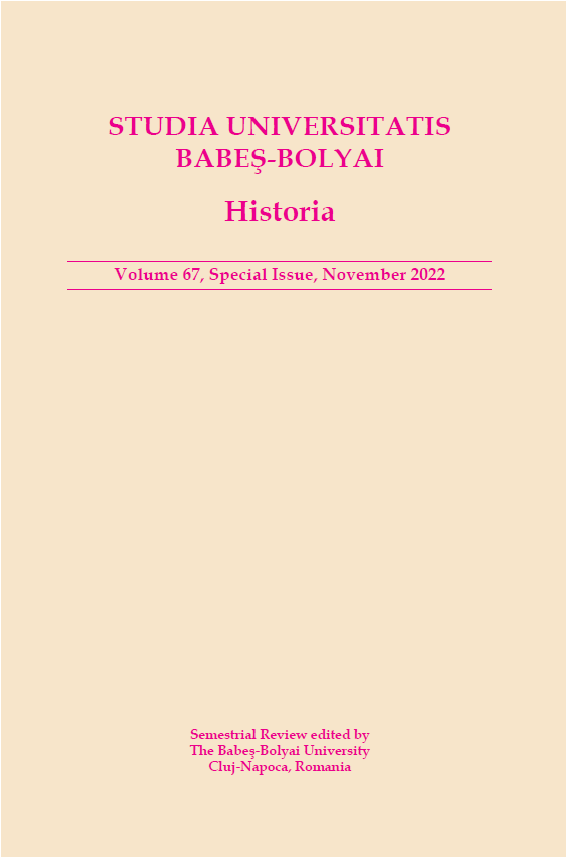Laws of Education and the Minorities of Transylvania between 1867 and 1990: Some Considerations
DOI:
https://doi.org/10.24193/subbhist.2022.spiss.08Keywords:
Education access, Nation-building, Nationalism, Transylvania, Hungarian-Romanian relationsAbstract
Through the laws passed in the educationnal field, this study aims to apprehend the governments’ relation with the minorities living in Transylvania from the beginning of the Dualist era until the end of communism in Romania. If Transylvania represents a fairy land in both Romanian and Hungarian imaginaries, it was also the center of an intense national competition between Bucharest and Budapest during the last 150 years over the control of the region. Following the rise of national feeling, mother tongue education became one of the most sensitive aspects between the governments and the elite of the nationalities. Considering this fact, this paper attempts to analyze how has the access to mother tongue education evolved from the Dualist period to the regime change in 1989-1990, with the help of the laws enacted at the time, as well as the literature data written by the specialists of Hungarian and Romanian education systems. Despite the profound differences between the regimes, many parallels exist in this matter. As the study tackles, the reinforcement of the nation came at the expense of school access in mother tongue for the minorities.
Rezumat: Analizând legile promulgate în domeniul educației, studiul îşi propune să surprindă relația dintre guvern şi minoritățile care au trăit în Transilvania de la începuturile Dualismului până la sfârşitul perioadei comuniste în România. În timp ce Transilvania, reprezintă o țără fermecată, atât în imaginarul românesc cât şi în cel maghiar, aceasta a fost în ultimii 150 de ani şi în centrul unei competiții naționale acerbe între Bucureşti şi Budapesta pentru deținerea controlului în regiune. În urma unei creşteri a sentimentului național, educația în limba maternă a devenit unul din aspectele cele mai sensibile în dialogul guvernelor şi a elitelor celor două naționalități. Ținând seama de acest fapt, studiul încearcă să analizeze modul în care a evoluat accesul la educația în limba maternă din perioada Dualismului şi până la schimbarea de regim din 1989-1990 cu ajutorul legilor în vigoare, precum şi cu cel al literaturii scrise de specialişti din domeniul educației din Ungaria şi România. În ciuda diferențelor profunde între regimurile politice, există paralele în acest domeniu. Studiul abordează întărirea națiunii care s-a realizat în detrimentul accesului minorităților la şcoli în limba maternă.
Cuvinte-cheie: acces la educație, construirea națiunii, naționalism, Transilvania, relații româno-maghiare
Downloads
Published
How to Cite
Issue
Section
License
Copyright (c) 2022 Studia Universitatis Babeș-Bolyai Historia

This work is licensed under a Creative Commons Attribution-NonCommercial-NoDerivatives 4.0 International License.






